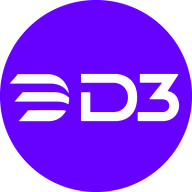

D3 Security and AWS Security Hub are competing in the security management space. D3 Security shines in specialized security features, whereas AWS Security Hub has the advantage in integration and scalability.
Features: D3 Security provides robust incident response, automation capabilities, and extensive customization, making it ideal for diverse environments. It offers advanced threat detection tools. AWS Security Hub focuses on seamless integration with AWS services, providing a comprehensive security view. It includes automated compliance checks and benefits from an integrated service ecosystem.
Ease of Deployment and Customer Service: D3 Security's deployment involves a high degree of customization with dedicated customer support for smooth implementation, although it might have a steeper learning curve. AWS Security Hub offers integrated deployment leveraging existing AWS infrastructure, simplifying the process for AWS-centric operations, benefiting from a unified service model with potentially less personalized support.
Pricing and ROI: D3 Security has a cost-effective pricing model providing strong ROI through advanced security features that reduce incident costs. AWS Security Hub operates on a scalable pricing structure based on service usage, which supports organizations with AWS investments. AWS Security Hub may offer better long-term ROI for companies deeply integrated with AWS, balancing feature accessibility with operational costs.


AWS Security Hub is a comprehensive security service that provides a centralized view of security alerts and compliance status across an AWS environment. It collects data from various AWS services, partner solutions, and AWS Marketplace products to provide a holistic view of security posture. With Security Hub, users can quickly identify and prioritize security issues, automate compliance checks, and streamline remediation efforts.
The service offers a range of features including continuous monitoring, threat intelligence integration, and customizable dashboards. It also provides automated insights and recommendations to help users improve their security posture. Security Hub integrates with other AWS services like Amazon GuardDuty, AWS Config, and AWS Macie to provide a unified security experience. Additionally, it supports integration with third-party security tools through its API, allowing users to leverage their existing security investments.
With its user-friendly interface and powerful capabilities, AWS Security Hub is a valuable tool for organizations looking to enhance their security and compliance posture in the cloud.
D3 Security provides a full-lifecycle incident management platform—one that enables multiple detection sources, enriches standards-based workflows with threat intelligence, orchestrates response, and always guides its users to conclusive remediation. The system is unique in its ability to eliminate incident recurrence, through root cause and corrective action discovery, digital forensics case management, and by generating a foundation of actionable intelligence that supports policies, countermeasures and controls.
We monitor all Security Orchestration Automation and Response (SOAR) reviews to prevent fraudulent reviews and keep review quality high. We do not post reviews by company employees or direct competitors. We validate each review for authenticity via cross-reference with LinkedIn, and personal follow-up with the reviewer when necessary.